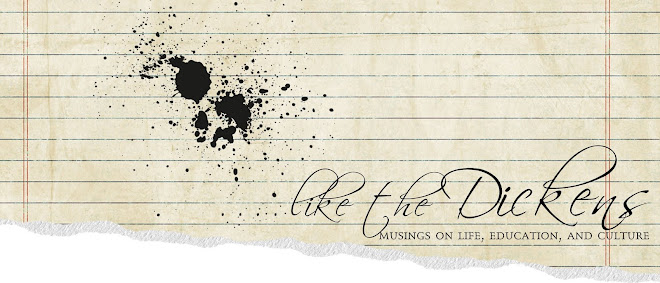
I am sure that if an Dante had been an English teacher he would have made the final circle of hell a place where you had to teach middle schoolers how to research in the library. I am using hyperbole, of course, but am partially serious. Trying to teach seventh graders how to look something up in the encyclopedia, find a book on a given topic, and write an MLA citation/works cited page never fails at being the most trying day of the year. I remember being astonished my first year of teaching when a student came to me and told me that Emily Dickinson was not in the encyclopedia. At first, I had a moment of panic until I realized that he had the E encyclopedia. Never in a million years would I have thought to explain that when looking up a person in the encyclopedia, one always looks him/her up by his/her last name. Now of course, I explain that to students before entering the library, but it never fails that I get at least three questions about why Abraham Lincoln (under A), Stonewall Jackson (under S), and Winfield Scott (under W) are not in the encyclopedia. Attempting a works cited page comes with a whole other host of issues and obvious questions.
There are simply some things that cannot be explained. I can say it, I can model it, but I cannot explain it. It is simply common sense and following instructions. In an era where every form of communication and searching is lightning fast and totally passive, research in a library becomes a foreign concept. (And I did feel like I was speaking a different language today.) Add hormones to the mix and it is just too much. I am sure Dante would agree.





